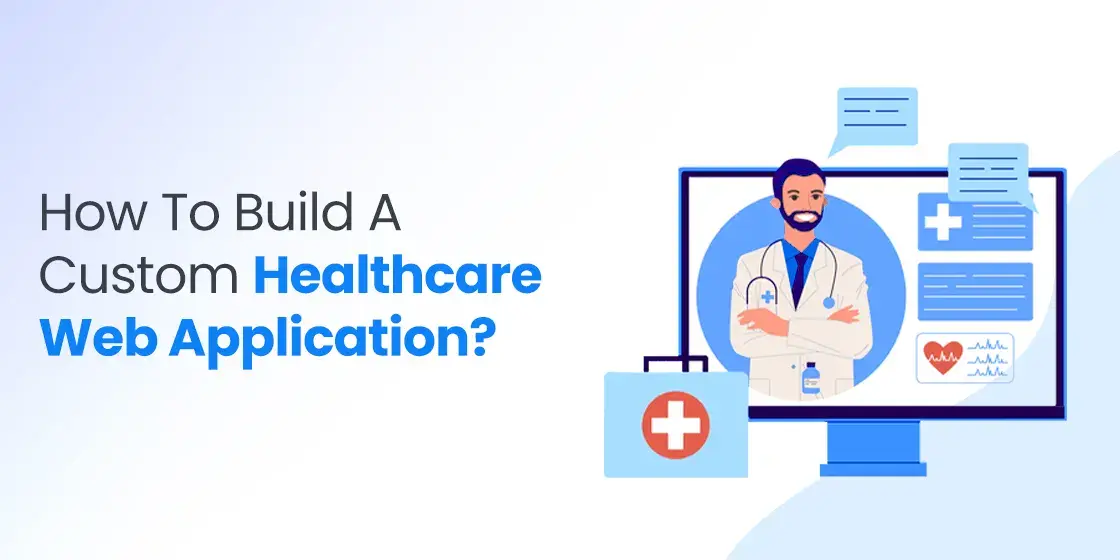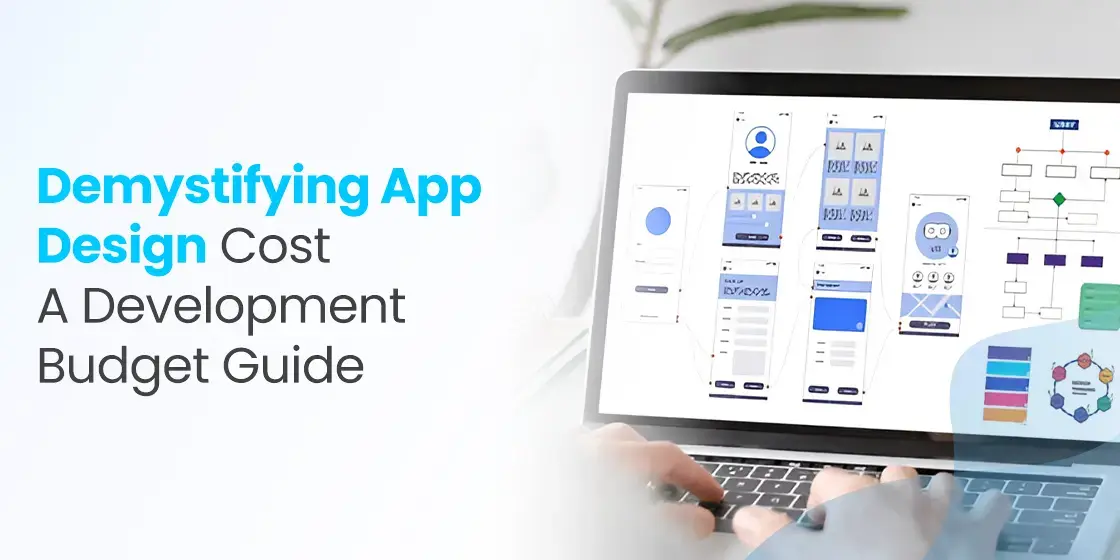Table of Content
How to Develop a Healthcare Website That Can Offer Advanced Functionalities Online
With the emergence of new-age technology, the healthcare industry has seen a massive revolution during the last few years. Popular technologies like AI and IoT have transformed the outdated processes of healthcare in a big manner. This is why many medical institutions are focusing strongly towards healthcare web app development to elevate their standards. They usually prefer to take web app development services from professional agencies to build these cutting-edge apps. It has become necessary for them, because changing industry standards require everyone to work with advanced technologies.
Besides general functions, healthcare applications also allow medical institutions to facilitate their customers on the web. These websites are built with specific features that help people to get various types of information and services through the internet. This is why healthcare web app development is increasingly becoming popular in the market. They are not just a mere tool to market the name of a hospital or clinic, but a complete platform where people can get different types of information related to their relevant issues.
If you are also looking to know how these healthcare web apps are developed, this blog will prove to be a good read for you. It will let you know about the steps that could help you to develop quality healthcare websites rightly as per the latest standards. Let’s first start from the basics understanding what is healthcare web app development in detail below.
What is Healthcare Web App Development?
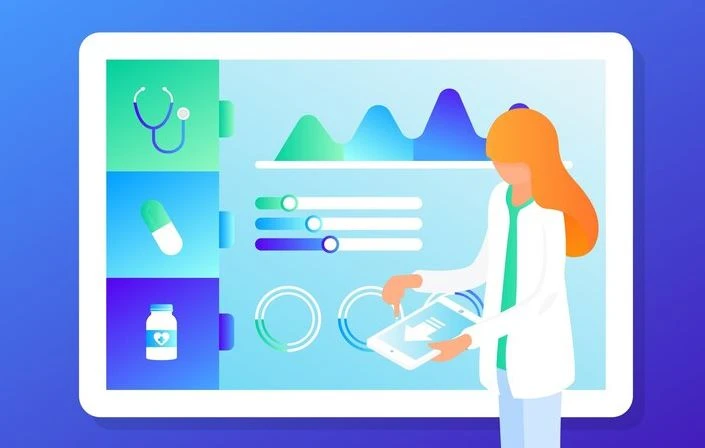
Healthcare web app development refers to the process of creating and designing web-based applications specifically tailored for the healthcare industry. These applications are developed to facilitate various aspects of healthcare management, including patient care, administrative tasks, and communication between healthcare professionals. he goal of healthcare web app development is to enhance the efficiency, accessibility, and overall quality of healthcare services by leveraging technology.
In the first phase of healthcare web app development, careful planning and analysis are crucial. Developers work closely with healthcare professionals, administrators, and other stakeholders to identify the specific needs and requirements of the application. This involves understanding the workflow of healthcare processes, compliance with regulations such as HIPAA (Health Insurance Portability and Accountability Act), and addressing the unique challenges of the healthcare sector.
The second phase involves actual development, where programmers and designers bring the concept to life. They use various web programming languages, frameworks, and technologies to create a robust, secure, and user-friendly healthcare web application. Once the development is complete, the third phase focuses on deployment, maintenance, and continuous improvement. This is how the healthcare web app development cycle works, ensuring a quality product at the end.
Fuel innovation by leveraging bespoke software solutions. Get in touch with our team of experts to build cutting-edge software products.
Get a QuoteEssential Features of Healthcare Web Apps
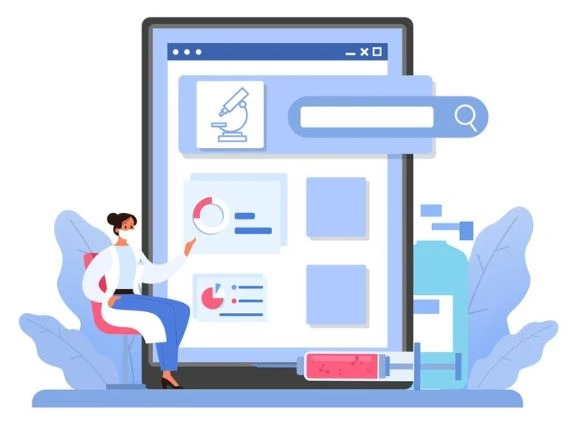
A healthcare app should be built with advanced functionalities that can help medical institutions offer various services on the internet. A lot of beginners do not know about these features, hence we have listed them in an organized manner below. Let’s take a look at them and understand their utility for different types of online users.
User Profile Authorization
Given that your healthcare web application will be responsible for managing sensitive patient information, it is imperative to establish a robust and secure method for accessing its features. Implementing a password-protected user authentication system becomes essential in guaranteeing the overall security of your application. Consequently, the development of a user registration and login page becomes a crucial component to facilitate secure access.
In addition to the authentication system, users should have the capability to create comprehensive profiles within the application. These profiles will encompass fundamental details such as names, contact information, addresses, and more. This profile functionality serves a dual purpose—it not only allows users to personalize their interaction with the application but also enables the identification of individual patients.
Online Appointment and Chats
In order to facilitate seamless interaction between patients and healthcare providers, the application incorporates robust features such as online chat and video calling capabilities. The integration of these functionalities in electronic healthcare system becomes indispensable as it allows patients to engage with healthcare services remotely. Through online chat and video calls, patients gain the flexibility to connect with their health providers from any location, thereby ensuring accessibility to healthcare services irrespective of physical proximity.
The integrated chatting and video calling feature not only enhances the convenience for patients but also plays a pivotal role in expanding the reach of healthcare services. This technological advancement empowers patients to initiate discussions, seek advice, and receive consultations through digital channels. As a result, the application becomes a versatile platform that accommodates the evolving needs of patients by offering a comprehensive and user-friendly interface for remote healthcare interactions.
Online Payment Integration
The online payment feature in healthcare web applications is a crucial component designed to streamline and enhance the financial aspects of healthcare services. This feature enables users, including patients and healthcare providers, to make secure and efficient monetary transactions through the web platform. Patients can seamlessly settle medical bills, insurance payments, or other healthcare-related expenses using various online payment methods such as credit/debit cards, digital wallets, or direct bank transfers.
Moreover, the online payment feature is integrated with stringent security measures to safeguard sensitive financial information. The implementation of encryption protocols and secure payment gateways through healthcare cloud computing ensures that patients’ personal and financial data remains protected during transactions. This not only builds trust among users but also aligns with regulatory standards and compliance requirements in the healthcare industry.
Review and Ratings
The online reviews and rating feature in healthcare web applications serves as a valuable tool for both patients and healthcare providers, fostering transparency and accountability within the healthcare system. This feature allows patients to share their experiences with specific healthcare providers, services, or facilities through written reviews and numerical ratings. Patients can provide feedback on aspects such as the quality of care, communication with healthcare professionals, waiting times, and overall satisfaction with the services received.
For potential patients, the online reviews and ratings feature functions as a reliable source of information, offering insights into the experiences of others. It helps them make informed decisions about choosing healthcare providers based on the collective feedback shared by the community. Additionally, this feature contributes to building trust and credibility within the healthcare system, as positive reviews can serve as endorsements, while constructive criticism can prompt providers to address issues and improve their services.
How to Develop a Healthcare Web Application?
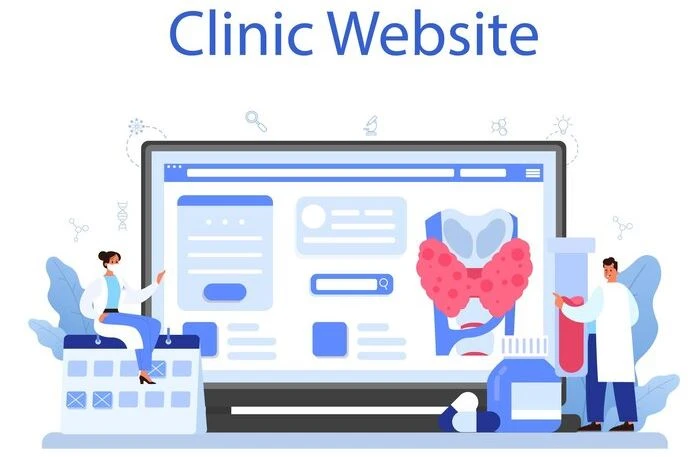
The development of a healthcare web application requires sound technical knowledge. Furthermore, it requires you to follow a strategy that can ensure quality product at the end. If you do not know which steps should be taken to develop a custom healthcare web application, take a look at the points defined below. It will clear your concepts, allowing you to understand the whole process of healthcare software development.
Evaluate the Market
Market research is a crucial step in the development of a healthcare web app, ensuring that the final product aligns with the needs and expectations of the target audience. Firstly, it’s essential to identify the target market and understand the specific needs and challenges within the healthcare industry. This involves conducting thorough demographic and psychographic analyses to gain insights into the preferences, behaviors, and pain points of potential users.
Secondly, staying abreast of industry trends and regulatory requirements is crucial for the success of a healthcare web app. The healthcare landscape is dynamic, with constant technological advancements and evolving regulations. Researching industry publications, attending conferences, and engaging with key stakeholders can provide a comprehensive understanding of the current landscape. This information helps in designing a web app that not only meets current needs but is also adaptable to future changes.
Select Development Methodology
Selecting the right software development methodology is crucial for the successful development of a healthcare web app, considering the unique challenges and requirements of the healthcare industry. The Waterfall methodology, with its sequential and linear approach, might be suitable for a healthcare web app project with well-defined and stable requirements. This is especially relevant if the regulatory environment and compliance standards are stringent or tightly defined.
Alternatively, the Agile methodology is well suited for healthcare web app development due to its iterative and collaborative nature. The Agile framework enables developers to adapt to changes quickly, ensuring that the healthcare web app can evolve based on real-time feedback from users, healthcare professionals, and other stakeholders. This approach is particularly beneficial when dealing with complex and rapidly changing requirements, as is often the case in the healthcare industry.
Start Website Development
Developing a healthcare website using the latest tools and technologies involves a strategic approach to ensure efficiency, security, and scalability. For the frontend development, leveraging modern frameworks like React.js or Angular can enhance user experience through responsive and dynamic interfaces. These frameworks facilitate the creation of interactive components, seamless navigation, and faster rendering, contributing to an overall user-friendly design.
On the backend, utilizing robust and scalable technologies is crucial for handling the complexity of healthcare data and ensuring data security and compliance. Frameworks such as Django for Python, Ruby on Rails, or Node.js can streamline backend development. Meanwhile, integration with secure and interoperable databases, such as MongoDB or PostgreSQL will help you manage healthcare data efficiently.
Perform Testing and Debugging
Testing and debugging are critical phases in the development lifecycle of a healthcare website to ensure its reliability, security, and functionality. Comprehensive testing involves various levels, starting with unit testing where individual components are tested in isolation to ensure they function as intended. Integration testing assesses the interactions between different components, ensuring seamless communication and data flow.
Security testing is paramount for a healthcare website due to the sensitive nature of patient data. Penetration testing, vulnerability assessments, and compliance checks with regulations like HIPAA can help identify and address potential security risks. Similarly, regular updating and patching software dependencies also contribute heavily to a robust security posture.
Key Benefits of Healthcare Web App Development
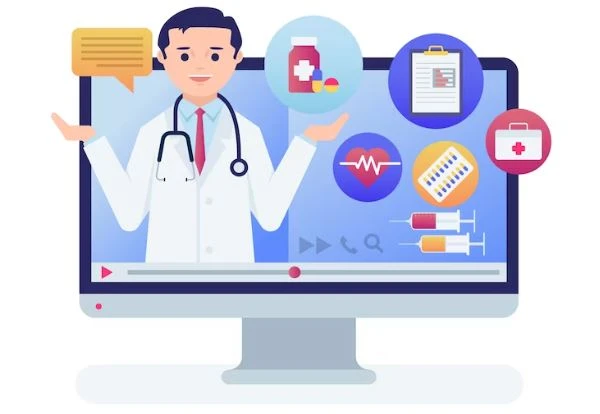
Having a quality healthcare web app brings plenty of benefits for the medical institutions. It streamlines customer facilitation, which is always considered very important. If you do not know how this app helps healthcare organizations to elevate their services, take a look at the key benefits defined below.
Boosts Productivity
Healthcare facilities grapple with numerous repetitive responsibilities such as handling insurance claims, appointment scheduling, billing, and various administrative tasks. The considerable time and resources consumed by these duties prompted the integration of healthcare web applications, which automate these processes. This automation enables hospitals to allocate a significant portion of their resources towards enhancing patient care.
Smart Decisions
Healthcare professionals have the capability to retrieve real-time patient data and actively monitor individual health statuses. This immediate access to information empowers medical practitioners to make timely, informed, and thoughtful decisions. These decisions not only enhance the quality of patient care but also enable professionals to take necessary measures promptly.
Lesser Operational Cost
Digitizing the management of patient records presents an opportunity for healthcare providers to minimize operational expenses. Instead of relying on paper to process different types of hospital data, healthcare web applications offer a digital solution for processing, storing, and managing medical information efficiently.
Easy Medical Care Access
Individuals residing in remote regions, particularly those situated in challenging terrains, frequently experience a lack of basic medical facilities, let alone access to well-equipped hospitals. In such circumstances, healthcare web applications always comes in very handy. They provide easy access to different medical services that are needed urgently in specific scenarios.
Cost of Healthcare Web App Development
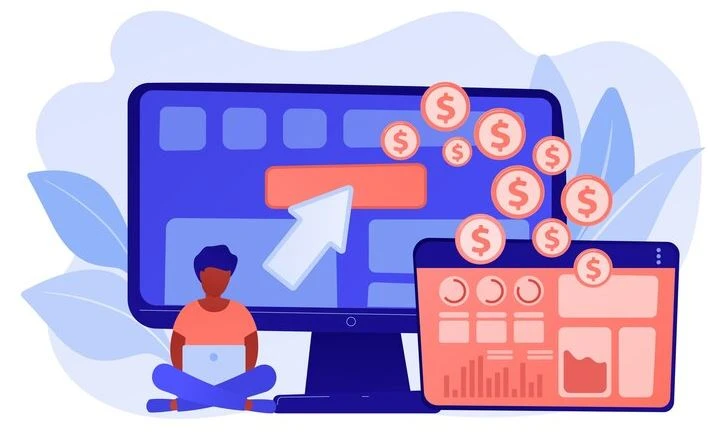
The cost of developing a healthcare website can vary significantly based on several factors, including the complexity of features. Simple healthcare websites with basic functionalities, such as providing information about services and contact details, may have a lower development cost. However, more complex healthcare websites with features like appointment scheduling, electronic health record (EHR) integration, and robust security measures will incur higher development expenses.
The cost of developing a healthcare website is influenced by a multitude of factors, and it’s essential to carefully assess the project’s scope, features, and compliance requirements. Collaborating with experienced development professionals and providing a detailed project brief will enable a more accurate estimation of the development costs. Generally, the cost of such web applications ranges from $25,000 to $50,000.
BariTechSol: Software Development Agency that Offers Custom Healthcare Solutions
BariTechSol is a renowned digital agency that offers web development services for different business niches. We understand the functional requirements of a medical organization, hence we can develop quality healthcare web apps according to that.
Over the years, we have served various clients connected to the healthcare industry. This has given us ample knowledge about different types of software products that are required by the clients. So, if you are looking for an agency that could work on custom web app development, give us a quick call today. We can help you to develop custom healthcare apps, rightly as per the needed demands.
Frequently Asked Questions (FAQs)
| What is a healthcare web app? A healthcare web app is a specialized application that facilitates medical organizations in offering specific healthcare services over the internet. These apps are quite popular these days, as hospitals and clinics are looking to have them to facilitate their patients. |
| How to develop a healthcare web app? To develop a healthcare web app, you need to follow some key rules and principles. First of all, you need to conduct a through market evaluation to see which type of apps are currently popular. Then you need to select a methodology, and afterwards start project development as per the given requirements. |
| Which tools and technologies should be used for healthcare web app development? You can use different types of tools and technologies for healthcare web app development. It includes popular coding languages like Python, C#, Ruby, PHP, and more others. |
Final Words
That takes us to the end of this blog in which we have discussed about healthcare web app development in detail. These web applications are currently demanded by every medical organization, as they provide tons of operational benefits to them. This blog has discussed some valuable tips that will help you to understand how to develop healthcare apps professionally. It has also listed different features that should be present in these apps, such as user profiling, online appointment and more others.
By following these tips, you will get to know how professional healthcare websites should be developed. It is certainly not an easy task, but with the right knowledge, you can build any project without buzzing into any confusion.
Empower your digital initiatives with BariTechSol, a premier custom software development company. Our skilled team tailors cutting-edge solutions to your unique needs. Elevate your tech experience and stay ahead in the digital realm. Partner with BaritechSol and code the success of your next big idea.
